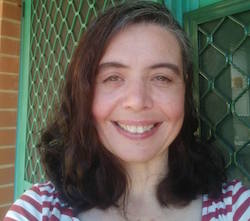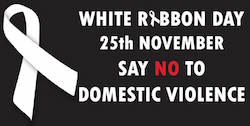A Charles Sturt University (CSU) expert says the community plays a critical role in reducing domestic violence in regional Australia.
Dr Andreia Schineanu, a research associate in the CSU School of Humanities and Social Sciences in Wagga Wagga, made the comments in the lead-up to International Day for the Elimination of Violence Against Women on Saturday 25 November, which is also White Ribbon Day in Australia, a day that highlights the role of men in addressing domestic violence.
 Dr
Schineanu was initially interested in studying post-natal depression, but completed
her PhD focusing on domestic violence and the mental health of Indian women.
Dr
Schineanu was initially interested in studying post-natal depression, but completed
her PhD focusing on domestic violence and the mental health of Indian women.
"After I completed studies in this area, I then expanded it to refugee women and then the abuse of women in Australia," Dr Schineanu said. "It's hard not to want to do something to change it after you see the extent of the problem."
Dr Schineanu is now working with the Wagga Women's Health Centre to complete a three-phase community project.
"The first phase of the project, completed in 2016, documents community attitudes and influencers to domestic violence and I am surprised at some of the findings," she said.
According to BOCSAR data, the five year trend indicates that recorded incidences of domestic violence in Wagga Wagga have increased by 22 per cent with the numbers of both male and female victims increasing. However, the number of female offenders has decreased while the number of male offenders has increased by 29 per cent.
According to Dr Schineanu, Wagga Wagga is in the top third of the state with respect to reported domestic violence, but she says the data only shows the tip of the iceberg because so many incidents go unreported.
"I had an idea that Wagga was a conservative city, but not to what extent," Dr Schineanu said.
"There are a lot of gender stereotype attitudes, which divide the roles of women and men leading to gender inequality. This then leads to violence because as it becomes part of a power struggle.
"Understandably, we get a lot of resistance from some men because of the status quo – it's hard to give up power."
Dr Schineanu hopes her work will target the underlying drivers of gender inequality, and ultimately change the attitude of people regarding the roles of women and men.
 "We hope to
come up with interventions for the community, but it's important that it has
input from local stakeholders and residents, and is owned by the community. It
won't happen overnight and there's no simple message, but we all need to do a
little to bring about change for the better."
"We hope to
come up with interventions for the community, but it's important that it has
input from local stakeholders and residents, and is owned by the community. It
won't happen overnight and there's no simple message, but we all need to do a
little to bring about change for the better."





Social
Explore the world of social